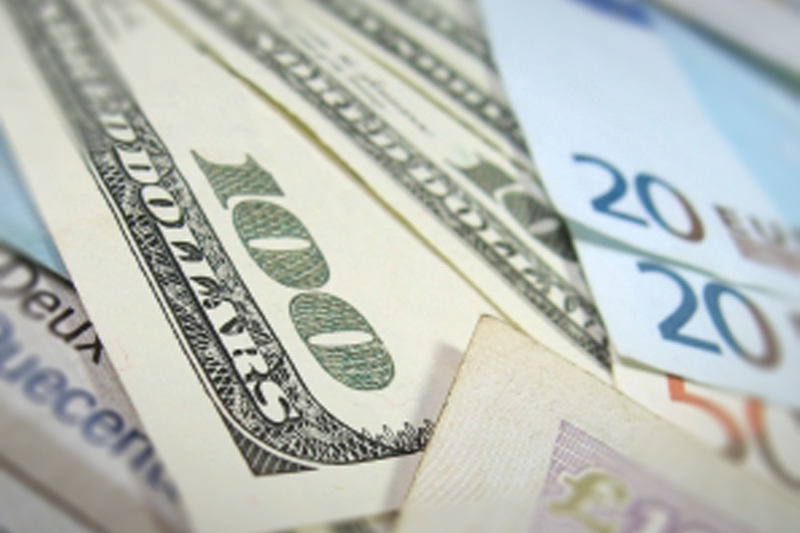Investing.com -- EUR/USD surged more than 2% to its highest level in eight months, as currency traders dumped their positions in the dollar on Monday, amid a global equities sell-off sparked by a potential recession in China.
The currency pair traded in a broad range between 1.1370 and 1.1710, before settling at 1.1610 up 2.05% on the session. At one point, the euro soared to its strongest level against the dollar since January 15 nearly erasing all of its losses since the start of the year. Before the pair's recent five-day winning streak, it had been in a holding pattern between 1.08 and 1.15 since the early portions of the spring.
EUR/USD likely gained support at 1.0808 the low from July 20 and was met with resistance at 1.2008, the high from January 5.
On Monday, the Shanghai Composite Index plunged 8.5% suffering its sharpest fall since 2007, as a dearth of activity from the People's Bank of China created a market-wide panic. Chinese index futures, meanwhile, fell by their limit of 10% providing strong indications that the downturn will continue. The massive sell-off comes days after Chinese manufacturing data dropped to its lowest level since the Financial Crisis, underscoring persistent sluggishness in the world's second-largest economy. While Chinese GDP grew by 7% over the first half of 2015, many analysts believe China's economy is decelerating and could suffer its slowest full-year growth in a quarter century.
Over the weekend, the People's Bank of China (PBOC) gave approval for local government pension funds to invest in Chinese equities, a policy move that could result in close to $100 billion being invested in stock markets nationwide. The PBOC is also expected to cut the Reserve Ratio Requirement (RRR) or amount that banks are forced to hold in reserves over the next several weeks, the Wall Street Journal reported. The PBOC has lowered the RRR by a total of 200 basis points in three separate cuts since February in an effort to accelerate economic growth. Another reduction of 50 to 100 basis points could pump more liquidity into the economy to stave off a massive capital outflow away from Chinese markets.
Following the activities of the past three days, many investors expected the PBOC to enact short-term measures on Monday to prevent a surge of capital from flowing out of Chinese markets. On Aug. 11, the Chinese central bank spooked global foreign exchange markets by devaluing the yuan by 1.9%, its largest one-day amount in more than a decade. Ever since, the PBOC has been forced to spend nearly $200 billion to prevent the yuan from falling even further below its desired level, the Financial Times reported.
The U.S. Dollar Index, which measures the strength of the greenback versus a basket of six other major currencies, plummeted more than 1.75% to an eight-month low of 92.54 before settling at 93.38 at the close. By comparison, the index exceeded 97.10 earlier last week.
For the most part, there was little movement in the bond markets in spite of the sell-off in equities. Bond prices increased slightly, as yields on theU.S. 10-Year fell by four basis points or 1.85% for the session. Yields on 10-year treasuries still closed below 2% for the first time since April 28.
